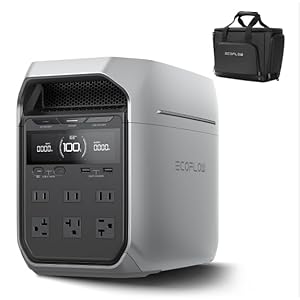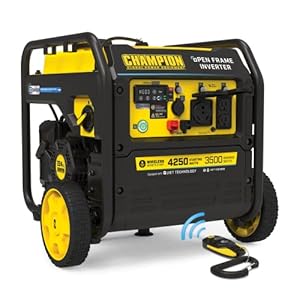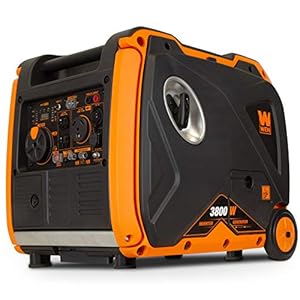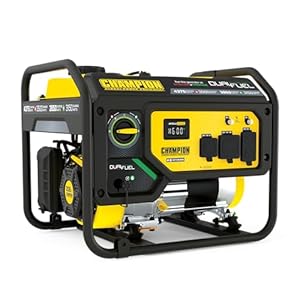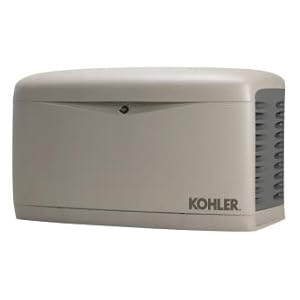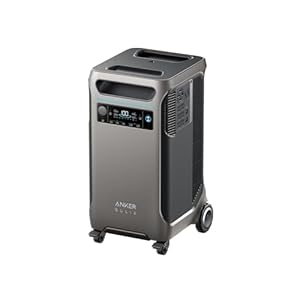
As a business property proprietor, you’re continually searching for methods to optimize tax methods and maximize deductions on your purchasers. One avenue that always goes underutilized is the Part 179 deduction, notably in the case of investments in tools like commercial generators. On this article, we’ll delve into who qualifies for Part 179 deductions and the way the acquisition of a business generator can qualify, providing priceless insights that can assist you resolve whether or not to spend money on your property for tax advantages.
Understanding Part 179 Deductions
Part 179 of the Inner Income Code is a tax provision designed to stimulate enterprise funding by permitting speedy deductions for sure qualifying property fairly than depreciating it over time. The first aim is to incentivize companies to spend money on belongings that contribute to their development and productiveness. Traditionally, this generator tax deduction has been a boon for small and medium-sized companies, offering vital tax financial savings and incentivizing funding in important belongings.
Who Qualifies for Part 179 Deductions
Part 179 deductions can be found to companies that buy and use qualifying property through the tax 12 months. Business property homeowners who use the property for income-producing functions, corresponding to renting out workplace areas or retail items, typically meet the standards.
Eligible property consists of tangible, depreciable private property, corresponding to equipment, tools, autos, and, importantly for business property homeowners, backup mills. To qualify for the generator tax deduction, the property have to be acquired for enterprise use and put into service throughout the tax 12 months.
Key factors to recollect about Part 179 deductions embrace:
1. Eligible Property:
Part 179 applies to tangible private property utilized in enterprise operations, together with equipment, tools, furnishings, and autos.
2. Limits:
Whereas the deduction restrict for Part 179 is substantial, it’s topic to sure thresholds. For the tax year 2023, the utmost deduction is $1,160,000, with a phase-out threshold of $2,890,000. These limits are adjusted yearly for inflation.
3. Qualifying Companies:
Most companies that buy, finance, or lease qualifying tools through the tax 12 months are eligible for the Part 179 deduction, together with firms, partnerships, and sole proprietorships.
How a Business Generator Matches into Part 179
Energy outages will be disruptive and expensive for companies, making the acquisition of a dependable backup generator a prudent funding. Particularly in right now’s more and more digital and interconnected world, uninterrupted energy provide is important for companies, notably these working in sectors corresponding to healthcare, hospitality, knowledge facilities, and manufacturing.
Now, let’s discover how the acquisition of a business generator can qualify for the Part 179 deduction. Business mills that present an influence supply for important enterprise operations, corresponding to lighting, heating, cooling, and safety programs, can qualify for Part 179 deductions. Property homeowners who prioritize enterprise continuity and spend money on a generator to safeguard towards energy outages can profit not solely from enhanced operational reliability but in addition from priceless generator tax deductions.
From a tax perspective, right here’s how the acquisition of a business generator aligns with Part 179:
1. Qualifying Property:
A business generator falls throughout the class of tangible private property used for enterprise functions, making it eligible for Part 179 deduction.
2. Main Use:
To qualify for the deduction, the generator have to be used primarily (greater than 50% of the time) for enterprise functions. This requirement is often met in business settings the place the generator serves as a backup energy supply for important operations.
3. Monetary Advantages:
By leveraging the Part 179 deduction, business property homeowners can deduct the complete buy value of the generator, as much as the desired limits, within the 12 months it’s positioned in service. This can lead to vital tax financial savings and enhance money circulate for the enterprise.
Make Investing in a New Generator Worthwhile
Understanding and successfully using Part 179 deductions can yield substantial tax advantages for business property homeowners. By investing in important tools corresponding to business mills, companies not solely improve their operational resilience but in addition capitalize on priceless tax incentives. Lastly, because the panorama of tax laws might evolve, staying knowledgeable and consulting with tax professionals will be certain that business property homeowners can profit from Part 179 deductions and different obtainable tax incentives.
Disclaimer
We’re the generator consultants, not the tax consultants! The above article is for data functions solely and shouldn’t be taken as monetary recommendation. Seek the advice of a tax skilled for extra data on generator tax deductions.
Earlier than making main monetary choices, all the time focus on your choices with a CPA.
Trending Merchandise

